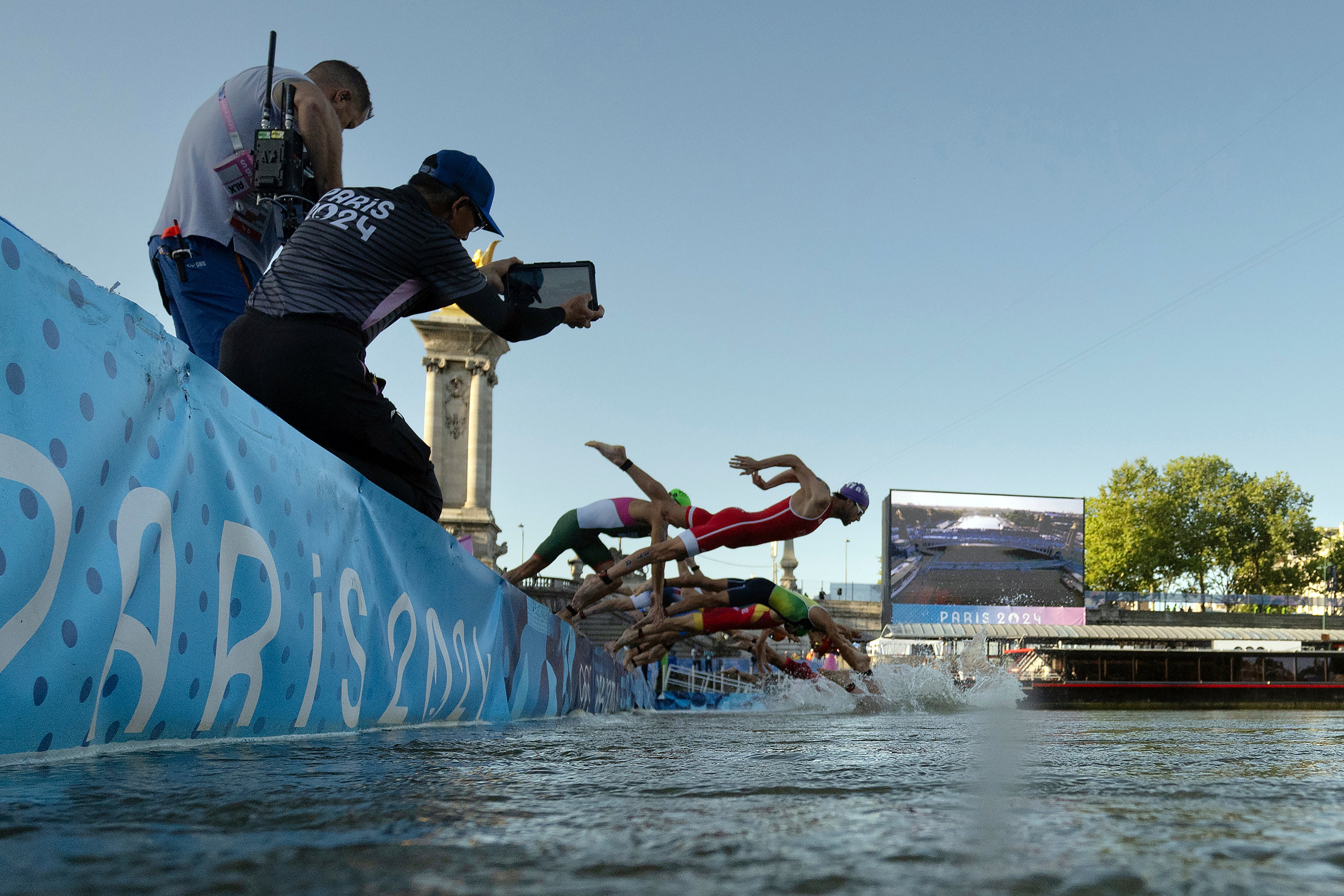Olympic swimmers are guzzling cans of Coke to protect from bacteria in the Seine
Water quality concerns have prompted teams to drop out and swim trials to be postponed

Your support helps us to tell the story
From reproductive rights to climate change to Big Tech, The Independent is on the ground when the story is developing. Whether it's investigating the financials of Elon Musk's pro-Trump PAC or producing our latest documentary, 'The A Word', which shines a light on the American women fighting for reproductive rights, we know how important it is to parse out the facts from the messaging.
At such a critical moment in US history, we need reporters on the ground. Your donation allows us to keep sending journalists to speak to both sides of the story.
The Independent is trusted by Americans across the entire political spectrum. And unlike many other quality news outlets, we choose not to lock Americans out of our reporting and analysis with paywalls. We believe quality journalism should be available to everyone, paid for by those who can afford it.
Your support makes all the difference.Olympic swimmers, some of the healthiest people on the planet, are turning to an unlikely, unscientific solution to ward off getting sick from competing in the polluted waters of the Seine in Paris: drinking cans of Coke.
Top swimmers swear by the stuff to prevent infection, according to athletes of three teams who spoke with The Wall Street Journal.
“The myth of Coca-Cola is true,” Moesha Johnson of Team Australia, said. “We will often have a Coca-Cola afterward just to try to flush out anything inside of us.”
That strategy, which swimmers from the US, New Zealand, and Italy all discussed with the paper, may not be scientifically sound, even if it’s popular.
Dr Maria Abreu, president of the American Gastroenterological Association, told the Journal that Coke is less acidic than a healthy stomach, meaning it likely wouldn’t add any infection-fighting power.

“These are young, athletic people, right? They’re going to be healthy people whose stomach acid is going to be nice and robust,” she said.
Water quality in the Seine has been a persistent concern in Paris so far. Swimming in the river has largely been prohibited for the last century because it’s been too toxic.
Despite French officials spending $1.5bn on infrastructure improvements ahead of the games, including to make the Seine cleaner, issues have persisted.
A test run of the marathon swim course in the Seine was postponed until today over concerns about water quality, though the triathlon mixed relay went ahead as planned the day before.
Last week, Belgium pulled its team from the mixed relay event after an athlete who previously swam in the river got sick, and a swimmer for Switzerland also missed the competition due to illness.
Last month, Paris mayor Anne Hidalgo swam in the Seine to assure athletes about the river’s safety.
“So I’m really proud and happy and to all those who want to continue saying it’s impossible to depollute a river, I tell them, ’Yes it’s possible, we did it,’” she said recently.
Despite these reassurances, some argue swimming the Seine was never a good idea.
“I would never have selected the Seine,” Davey Jones, professor of Environmental science and public health at Bangor University, told BBC Science Focus. “I know it’s iconic, but it also runs through a hugely urbanised area which is always a recipe for disaster when it comes to potential exposure to chemicals or biological pathogens.”
Join our commenting forum
Join thought-provoking conversations, follow other Independent readers and see their replies
Comments